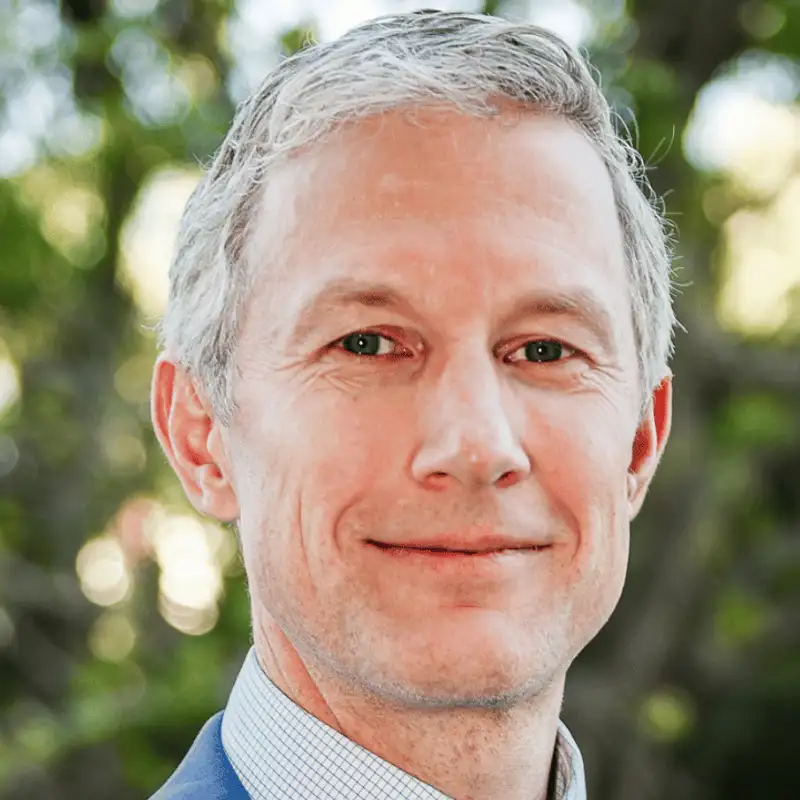Georges Dyer -- Socially Responsible Endowments
Download MP3Georges Dyer is the Co-Founder and Executive Director of the Intentional Endowments Network (IEN), a non-profit, peer-learning network that helps endowed institutions make their endowments socially responsible. Of the 3,500 - 4,000 colleges and universities in America, some 2,000 have endowments that are valued at ~$900 billion in aggregate. These academic institutions -- as well as asset management firms, cultural institutions, museums, faith-based organizations, non-profit foundations, and others -- also have a similar value in retirement funds... which while highly regulated, are also being directed towards socially responsible and profitable investments.
Georges explains the genesis of IEN. Spurred by the president of Hampshire College, Jonathan Lash, IEN was originally formed to help institutions divest from fossil-fueled industries that were counter to their climate action plans. Student and faculty concerns really started to press on endowment portfolios in 2013. Today, IEN works with some 250 endowments. Ted asks the bottom line question early: How are these endowments performing? Are they losing money, or are they on par, or are they ahead? Georges explains that on balance, they are at par or better.
IEN provides a number of tools and resources for its members.. from virtual and in-person "convenings," to benchmarking tools, case studies, and more. The network provides insights and negative screening tools to weed out investments that run counter to an institution's mission and goals, while highlighting positive investment opportunities to reduce risk and steer institutions towards profitable investments in the green economy.
The conversation shifts to case studies of "platinum" members: Georges discusses leading institutions including the University of California system and Arizona State University. He discusses how some institutions have found means to invest in their own facilities... for instance solar projects and facility upgrades that make dollars and cents while addressing inequality and other social issues. Georges sites the Rockefeller Brothers Fund as a shining example. Born of oil and gas and fossil fuels, Rockefeller has been a leading example of an organization whose Standard Oil roots are now focused on "intentional investments" with highly positive performance.
For more on IEN and its mission and results, check out Georges' new podcast, "The Future of Finance."
Georges explains the genesis of IEN. Spurred by the president of Hampshire College, Jonathan Lash, IEN was originally formed to help institutions divest from fossil-fueled industries that were counter to their climate action plans. Student and faculty concerns really started to press on endowment portfolios in 2013. Today, IEN works with some 250 endowments. Ted asks the bottom line question early: How are these endowments performing? Are they losing money, or are they on par, or are they ahead? Georges explains that on balance, they are at par or better.
IEN provides a number of tools and resources for its members.. from virtual and in-person "convenings," to benchmarking tools, case studies, and more. The network provides insights and negative screening tools to weed out investments that run counter to an institution's mission and goals, while highlighting positive investment opportunities to reduce risk and steer institutions towards profitable investments in the green economy.
The conversation shifts to case studies of "platinum" members: Georges discusses leading institutions including the University of California system and Arizona State University. He discusses how some institutions have found means to invest in their own facilities... for instance solar projects and facility upgrades that make dollars and cents while addressing inequality and other social issues. Georges sites the Rockefeller Brothers Fund as a shining example. Born of oil and gas and fossil fuels, Rockefeller has been a leading example of an organization whose Standard Oil roots are now focused on "intentional investments" with highly positive performance.
For more on IEN and its mission and results, check out Georges' new podcast, "The Future of Finance."

